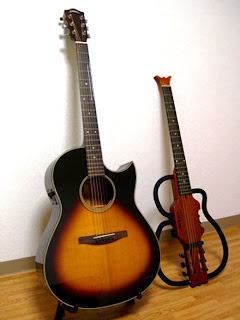
Recently I came accross an article which sheds light on the origin of Guitar: A stringed musical instrument. I thought I would share:
The guitar actually has a mixed heritage, but the origins of the modern instrument can be traced back to Spain. In fact, the word "guitar" is derived from the Spanish word "guitarra." Of course, for many beginning players, the last thing they really want to know is the history of the guitar. In reality, however, knowing the origins of the guitar, as well as its extensive history, can help players develop a deeper respect for the instrument. In addition, knowing how the guitar has evolved helps players understand the construction of the modern guitar.
Sometime around 40 AD, the Romans made their entrance into Spain, or Hispania as it was called. With the Romans came a musical instrument known as a cithara. The cithara was a type of lyre, but it was typically played by professional musicians. It had a wooden sounding box made of two tables connected by ribs. Above the box was a tuning bar, and the strings were stretched from the tuning bar to a tail piece on the box. Notes were played by strumming strings with one hand, while using the other hand to deaden the unwanted strings.

In the 8th century AD, the Moors entered Hispania from the south. The Moors brought an instrument called an oud. The pear-shaped body of the oud was flat on the front, and bowl-shaped on the back, and it usually had more than one sounding hole. At that time, the most common oud had only four strings, and the neck was not fretted. Tuning was accomplished by turning the keys on the pegboard. Both the oud and the cithara were played with a pick, although the oud could also be played by slide and vibrato.
Eventually, the cithara and the oud were combined into two instruments: the Moorish guitar and the Latin guitar. The Moorish guitar retained the rounded back, multiple sound holes and wide fingerboard of the oud. The Latin guitar, on the other hand, had a more narrow neck, a flat back and one sound hole. Despite having only four strings, the Latin guitar of the 11th century is clearly the predecessor of the modern guitar.


